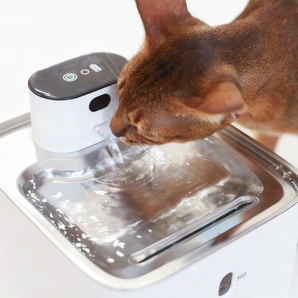.jpg)
You call their name—no answer. No jingling bell, no footsteps, nothing. Then, after searching under beds and behind curtains, you finally find them curled up inside a cardboard box or squashed between two sofa cushions, looking like they’ve been there forever.
Why do cats hide in the first place? Is it just curiosity, or is something more serious going on?
Let’s take a closer look at cat hiding behavior and what it might mean for your furry friend.
🐾 It’s Not Random — It’s Instinct
If you’ve ever wondered why your cat keeps disappearing, the answer might lie in their ancient roots. In the wild, cats are both predators and prey. This dual role makes hiding second nature—essential for both survival and hunting.
Even though your indoor cat no longer faces wild threats, that deep-rooted instinct remains. Hiding gives them a feeling of security, control, and calm—especially during moments of stress or overstimulation.
In fact, recent studies on feline behavior show that access to enclosed, quiet spaces can significantly lower stress in cats, especially during changes like moving or vet visits.
🧠 Common Reasons Cats Hide (and What to Do)
Sometimes, hiding is harmless. Other times, it could be your cat’s way of telling you something is wrong.
Here are some typical triggers behind hiding behavior:
| Situation | Possible Cause | What You Can Try |
|---|---|---|
| Guests visiting, loud parties, or new environments | Stress or anxiety | Create a quiet retreat space with familiar scents |
| Hiding for 24+ hours, not eating or drinking | Illness or discomfort | Consult your vet ASAP — could be a medical issue |
| Avoids certain areas or other pets | Territory disputes | Follow the “N+1” rule: one extra litter box, bowl, and bed |
| Retreats after petting or play | Sensory overload | Let them rest undisturbed in a preferred spot |
| Hides during storms or vacuuming | Fear-based reaction | Set up a calm, low-light space with noise insulation |
| Crawls into odd spots (bags, boxes, drawers) | Natural curiosity | Cat-proof risky zones but let them explore safely |
SEO Note: Searching terms like “cat not eating and hiding” or “cat hides during storms” are common — these phrases have been included above for better visibility.
⚠️ When Hiding Might Mean Trouble
If your cat hides occasionally, that’s normal. But if hiding is paired with other symptoms like loss of appetite, lethargy, or sudden aggression, it could indicate:
-
Pain or injury
-
Illness (especially urinary or digestive issues)
-
Emotional stress from environmental changes
In those cases, don’t wait. A vet visit is the safest choice.
🏡 How to Create a Safe Space for Your Cat
You can’t stop your cat from hiding—nor should you. But you can offer better hiding options that feel secure and comforting.
Try this:
-
Provide semi-enclosed hideouts (like covered beds or small tents)
-
Use elevated areas like cat trees for vertical retreat
-
Line their safe space with a soft blanket or one of your worn T-shirts
-
Avoid strong-smelling cleaners like citrus or mint in those areas
By doing this, you're not just preventing unwanted hiding—you’re offering intentional spaces for comfort and decompression.
Bonus tip: Cats often hide when introduced to a new product. If you're switching to a new automatic cat litter box, give them time and a quiet spot to adjust.
💬 It’s Not About You. It’s About Them.
When your cat suddenly vanishes mid-snuggle, it’s easy to wonder if you’ve done something wrong. But remember—hiding isn’t rejection. It’s self-regulation.
Cats don’t always express their needs openly. Sometimes, they just need space. Respecting that choice is a great way to build deeper trust over time.
🔍 Frequently Searched Terms You Might Be Wondering:
-
Why is my cat hiding and not eating?
-
Cat hiding under bed for days—should I worry?
-
Best hiding spots for stressed cats?
-
How to create a calm environment for cats?
You're not alone in these questions—and the answers often begin with understanding your cat’s emotional world.
🐱 Final Thought
So the next time your feline friend disappears into a drawer or under the couch, take a breath. They’re not avoiding you—they’re just recharging, hiding out, or processing the world in their own quiet way.
And chances are, they’ll reappear… just in time for dinner.











